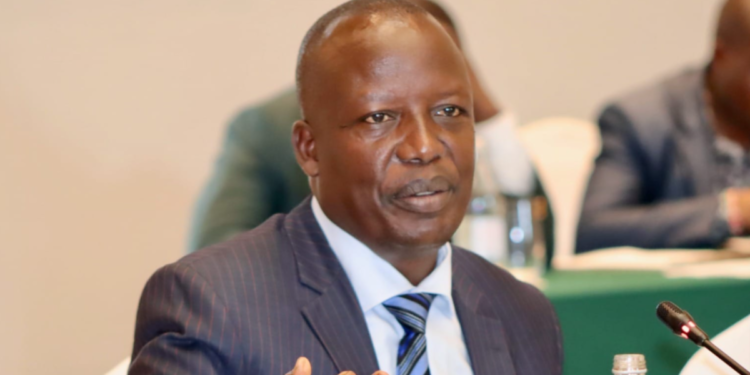The Chairperson of Kenya’s Departmental Committee on Education, Julius Melly, has called on the Budget and Appropriations Committee to reinstate the KES 4.9 billion school feeding programme that was excluded from the FY 2024/25 Budget Estimates. This appeal comes amidst broader budgetary discussions focused on the education sector.
“The Education Committee has reinstated KES 2 billion under NACONEK for this crucial school feeding programme. However, the amount reduced from the programme was KES 4.9 billion. The Committee recommends that the Budget and Appropriations Committee considers allocating an additional KES 3 billion so that the entire amount is fully reinstated,” Melly stated.
The plea was made during a session where Melly presented the Education Committee’s Budget Estimates for FY 2024/25 and the FY 2023/24 Supplementary II before the Budget and Appropriations Committee, led by Ndindi Nyoro.
In addition to the school feeding programme, Melly advocated for the conversion of 26,000 intern teachers to permanent status starting July 2024, ahead of the proposed January 2025 timeline. This change, he argued, would significantly boost teacher morale and demonstrate the government’s commitment to securing permanent employment for successful intern teachers.
“The conversion of the terms of service for intern teachers will boost their morale and is also an assurance of the government’s commitment in ensuring that all future intern teachers are converted to permanent employment after successfully completing the internship period,” Melly emphasized.
Nyoro, concerned about the financial implications, queried the cost of hiring all the intern teachers on a permanent basis. “Assuming there is no supplementary budget, I would want you to clarify how much it would cost to hire on permanent terms all the JSS teachers, totaling 26,000 for the first batch and 20,000 for the second batch?” he asked.
Melly responded, “For employing 46,000 teachers, we need KES 28.6 billion. The Commission has been allocated KES 4.7 billion to recruit 20,000 intern teachers for Junior Schools and KES 8.3 billion to convert 26,000 intern teachers into permanent employment. So we have a deficit of KES 14.6 billion.”
Further emphasizing the need for adequate funding, Melly highlighted the allocation for teacher promotions. The Teachers Service Commission (TSC) has been provided with KES 1 billion to promote teachers who have been in the same job group for an extended period. “The Commission required KES 2 billion to carry out these promotions. The allocation proposed in 2024/25 will support the successful completion of this exercise, benefiting teachers who have stagnated in various job groups for almost 17 years,” he assured.
The recommendations also included directing KES 21.7 billion of the proposed 2024/25 exchequer current grants to various public universities to support continuing students and allocating KES 2.08 billion to ongoing capital projects in public universities and research institutions.
This comprehensive set of budgetary recommendations underscores the Education Committee’s commitment to addressing critical issues in Kenya’s education sector, from ensuring food security for students to stabilizing and motivating the teaching workforce. The final decision now rests with the Budget and Appropriations Committee, which will determine the extent to which these proposals can be accommodated within the broader fiscal framework.

















